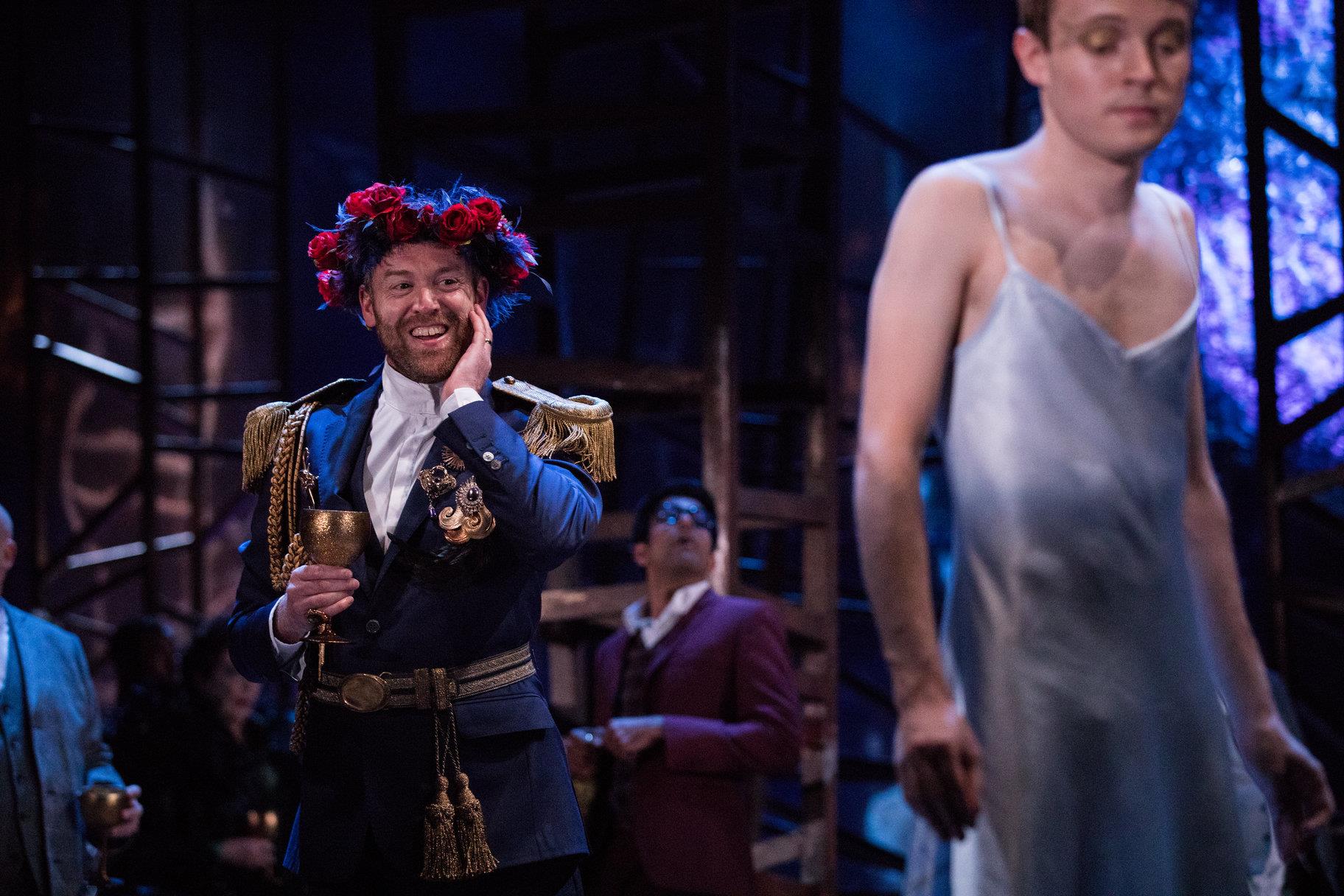
Oscar Wilde is associated with satirical comedy rather than tragedy, but Salomé from 1892 deals with the destructive power of supressed sexuality with passion and theatricality and, if not a classic, deserves its occasional revival to reflect changing attitudes in society.
Fifty years after homosexuality was decriminalised, here it comes again with a potential show stopper, a male actor – Matthew Tennyson, in the title character. Think about that during this synopsis.
In Roman Palestine, King Herod has his brother killed and marries his wife Herodias. He then imprisons outspoken moral critic and holy man Iokanaan (aka John the Baptist). Herodias wants him dead. So too does her young daughter Salomé, after the prisoner refuses to respond to her sexual obsession with him.
When the lustful king offers her whatever she wants, if only she will dance for him, she gets her wish: Iakanaan’s head on a silver salver. Sickened by his step-daughter’s kissing the dead man’s lips, Herod has her crushed to death.
Biblical origins and adaptations in French by Flaubert and the symbolist poet Stéphane Mallarmé gave Wilde the basis for his dramatised prose poem. A flow-of-consciousness exploration of sexual passions – including gay ones, for a smug hypercritical, repressive society.
As Salomé, slight and dressed in a skimpy dress and red high heel shoes, Tennyson presents a picture of innocence equivalent to a school-trained lieutenant at the Western Front. A blank canvas for director Owen Horsley to project current concerns about homosexual life, now almost totally accepted but still not totally comfortable, when some gay men find it difficult to feminise or masculinise their sexuality.
Tennyson acts and adapts superbly: intimidated then celebrating in the frenzied sexual gaze of Herod and his rabid court, close to self-harming with a knife and then to attack on the king as he suffers cruel attention, dominantly demanding his fevered wish for the holy man’s death, and then crooning gently his loving sorrow to the severed head.
Nothing else is changed, however, to match the substitution. He is addressed as she, even after his sensual and elegant unveiling dance, removes any room for doubt. And the sexual balance between the other characters is left in a strange limbo.
The songs of Perfume Genius sung by Ilan Evans with a rugged rock backing, are not always audible. An outdated way perhaps of dramatic narration – positively tension breaking when inserted between Wilde’s coup de theatre with Iokanaan’s head and the order for Salome’s execution.
Wilde’s over-heightened, symbolist language – about the moon, blood and madness can provide more mystification than mystique. Matthew Pidgeon as Herod however, trying to persuade Salomé away from her fevered demands, exploits a true vein of magical, biblical poetry. His is a fine performance, no panto villain, but extravagant smiling beneficence, concealing venality, insecurity and menace.
As his wife Suzanne Burden is an indomitable unrepentant presence, giving as good and as tough as she gets. Whilst as the Baptist, Gavin Fowler is a muscular silhouette against the climbing towers set, and a disembodied voice of doom.
Ironically Wilde, who thought it impossible to set tragedy in modern times, suffered it in his own life. By the time of Salomé’s first private performance in Paris, he was ‘disgraced’ and in prison for ‘homosexual ‘offences’, but also working upon the poem, The Ballad of Reading Gaol his truly tragic masterpiece. ★★★☆☆ Derek Briggs 21st June 2017

